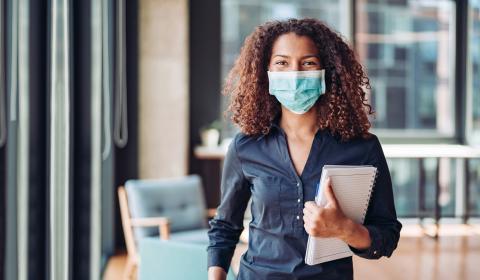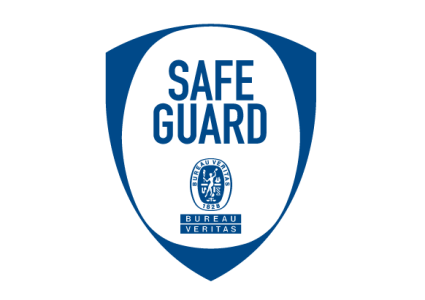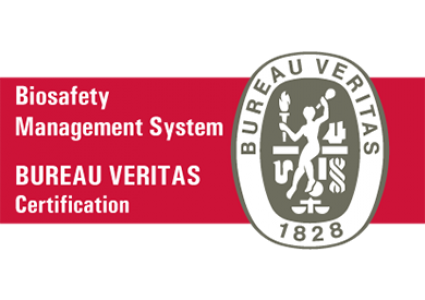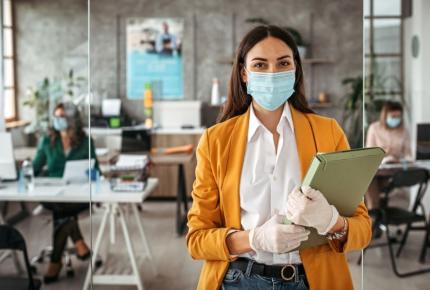
Preparing for life after COVID with Biosafety Certification and Safeguard Label
The outbreak of the COVID-19 virus last year put the world at a standstill. Businesses were forced to close with little to no indication of when they would be able to reopen. As case numbers stabilized, companies gradually reopened, but with a difference: they had to take stringent preventative biosafety requirements into account.
At some point in 2020, you may have implemented the SafeGuard label to reassure employees and customers. However, even with vaccine campaigns underway in many countries, we are now preparing for further COVID waves and subsequent recovery. For more robust protection Bureau Veritas recommends combining the SafeGuard label with Biosafety Certification. This certification enables companies including hotels, restaurants, stores, and other services to minimize contamination risk in the workplace and better prepare for future outbreaks.
Protecting and reassuring your key stakeholders
The SafeGuard label is used in anticipation of full or partial reopening of businesses. The label allows companies to check that all appropriate health, safety, and hygiene controls are in place to support business resumption.
Biosafety Certification helps you go further in protecting your clients, employees, and the general public. This certification is audited against a Biosafety Management System (BMS), which is a comprehensive, structured way to manage sanitary risk across an organization.
The BMS standard, developed by Bureau Veritas, incorporates risk assessment, use of Personal Protection Equipment (PPE), and hazard, engineering, and administrative controls. To ensure compliance with the policy and protocols related to infectious disease risk, certain resources and competencies must be in place. These can be identified by implementing a BMS and obtaining Biosafety Certification.
By combining the SafeGuard label with Biosafety Certification, businesses can ensure they have sufficient resources in place to address future outbreaks of infectious diseases, and safely reopen to the public.
Robust protection for the future
Over the past year, the hospitality sector worldwide has been hard-hit by the pandemic. Hotels, restaurants, and retail are among the many establishments who had no option but to close their doors for the majority of 2020. As vaccination rollout speeds up globally, preparing for life post-crisis is essential for recovery.
By combining the SafeGuard label with Biosafety Certification, businesses can ensure they have sufficient resources in place to address future outbreaks of infectious diseases, and safely reopen to the public. With stronger protection and better preparation, companies can demonstrate their commitment to providing a safe working environment as well as uninterrupted service delivery.
The SafeGuard label confirms adherence to best practices of individual sites based on a comprehensive checklist. Biosafety Certification can use these checklists for sites within your network as part of its documented information.
With Biosafety Certification, businesses can define skills needed for system implementation and provide appropriate training. The management system also underlines the need to develop awareness through clear and accurate communication. The certification audit is performed in two stages: a readiness review to verify the organization is fit for certification, and an evaluation of implementation and the effectiveness of the organization’s BMS.
The SafeGuard label, once the audit is passed, can be displayed in a number of ways. A sticker sent to approved sites can be displayed on its window or front door. In addition, the digital label can be used in advertisements and corporate brochures, company websites, and press and financial communication.
We’re here to support your business plan for life post-crisis
Bureau Veritas are here to help you prepare for reopening your business and life after COVID. The first thing you can do is book a remote or onsite audit for the SafeGuard label, which has a six-month validity ideal for implementation during the pandemic.
For long-term sanitary and biohazard risk mitigation, we can carry out an onsite audit for Biosafety Certification. This certification lasts for three years and will allow you to retain protection beyond the global health crisis.



